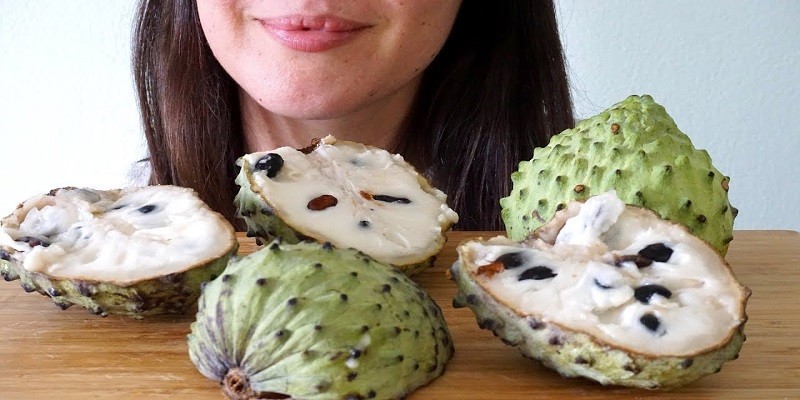Yes, you can eat custard while pregnant as long as it is made with pasteurized eggs or thoroughly cooked to eliminate the risk of salmonella from raw eggs.
Custard is a delicious and creamy dessert that many pregnant women crave. However, there are concerns about the safety of consuming raw eggs, which are a key ingredient in custard. This article will provide a comprehensive guide on whether it is safe to eat custard during pregnancy, its nutritional value, potential risks, and safe ways to enjoy it.
What is Custard?
Custard is a rich, creamy dessert made by combining eggs, milk or cream, sugar, and flavorings such as vanilla. It can be served chilled or baked and is often used as a filling for pies, tarts, and other pastries. Custard can be made from scratch or using a powdered mix, and its texture can range from thick and pudding-like to light and airy.
Nutritional Value of Custard
| Nutritional Value | Details |
|---|---|
| Calories | 150-200 per serving |
| Protein | 4-6 grams |
| Carbohydrates | 20-25 grams |
| Fat | 6-10 grams |
| Calcium | 10-15% of daily value |
| Vitamin A | 8-10% of daily value |
Risks of Eating Custard During Pregnancy
| Risks | Details |
|---|---|
| Salmonella | Raw or undercooked eggs can contain salmonella bacteria, which can cause food poisoning and potentially harm the developing fetus. |
| Allergies | Some women may be allergic to eggs or dairy products used in custard. |
| Gestational Diabetes | Custard is high in sugar and carbohydrates, which can be a concern for women with gestational diabetes. |
Safe Ways to Eating Custard During Pregnancy
Pregnant women can safely enjoy custard by following these guidelines: use pasteurized eggs or thoroughly cook the custard to an internal temperature of 160°F (71°C) to kill any potential bacteria. Commercially prepared custards are generally safe as they are made with pasteurized ingredients.
Alternatives to Custard During Pregnancy
| Alternatives | Precautions |
|---|---|
| Yogurt | Choose pasteurized varieties and avoid unpasteurized or raw milk products. |
| Pudding | Look for pudding mixes or pre-made puddings made with pasteurized ingredients. |
| Fruit Smoothies | Avoid unpasteurized juices or raw fruits and vegetables that may contain harmful bacteria. |
Experts Tips
- “Pregnant women should avoid consuming raw or undercooked eggs due to the risk of salmonella. Custard made with pasteurized eggs or thoroughly cooked is safe to eat during pregnancy.”
- “Commercially prepared custards are generally safe for pregnant women as they are made with pasteurized ingredients and cooked at high temperatures to kill any potential bacteria.”
- “If making homemade custard, use pasteurized eggs or cook the custard to an internal temperature of 160°F (71°C) to ensure it is safe for consumption during pregnancy.”
FAQs
Can I eat custard tarts or custard-filled pastries during pregnancy?
Yes, you can eat custard tarts or custard-filled pastries during pregnancy as long as they are made with pasteurized eggs or thoroughly cooked to eliminate the risk of salmonella.
Is it safe to eat custard ice cream during pregnancy?
Custard ice cream is generally safe to eat during pregnancy as long as it is made with pasteurized ingredients and stored at the proper temperature to prevent bacterial growth.
Can I eat custard if I have gestational diabetes?
Custard is high in sugar and carbohydrates, so it should be consumed in moderation if you have gestational diabetes. Consult with your healthcare provider for appropriate portion sizes and blood sugar monitoring.
Can I eat custard if I’m allergic to eggs or dairy?
If you have an allergy to eggs or dairy products, you should avoid custard as it contains both of these ingredients. Seek alternative dessert options that are safe for your dietary restrictions.
Can I eat custard while breastfeeding?
Yes, custard is safe to consume while breastfeeding as long as it is made with pasteurized ingredients or thoroughly cooked to eliminate any potential bacteria.
Conclusion
Custard can be a safe and enjoyable treat during pregnancy as long as it is made with pasteurized eggs or thoroughly cooked to eliminate the risk of salmonella. Pregnant women should be mindful of portion sizes and consult with their healthcare provider if they have any concerns or dietary restrictions.
Last Updated on May 26, 2024 by Marjorie R. Rogers, MA (English), Certified Consultant

